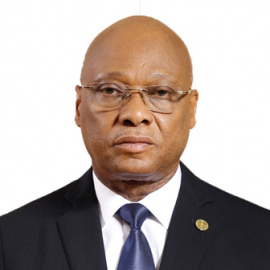The Economic Community of West African States (ECOWAS) appears to have come to terms with the ousting of President Roch Marc Christian Kabore in Burkina Faso and is planning to convene an emergency summit over the development.
In a statement on Tuesday, the West African bloc condemned the Burkinabe military for defying regional and international appeals to respect constitutional order.
“ECOWAS notes that, despite calls from the regional and international community for calm and respect for constitutional legality, the situation in Burkina Faso is characterized by a military coup this Monday, January 24, 2022,” the statement issued by the ECOWAS Commission said.
It added: “ECOWAS strongly condemns this coup by the military, which marks a major democratic setback for Burkina Faso. An extraordinary ECOWAS summit will be held in the coming days to review this situation.”
A group of soldiers calling itself the Patriotic Movement for Safeguarding and Restoration (MPSR) on Monday announced the dissolution of the government and suspended the constitution and parliament, following two days of unrest across the country.
The military later published a letter bearing the deposed president’s signature, indicating his resignation.
But ECOWAS said the resignation was obtained “under threat, intimidation and pressure from the military.”
There has been an outpouring of condemnations of the coup, as the junta seeks to consolidates its power.
The African Union, the United Nations and Western countries have joined ECOWAS in condemning it and calling for the release of the deposed president and members of his cabinet.
ECOWAS said it would hold the military responsible if anything happens to the deposed president.
In a statement, Moussa Faki Mahamat, AU Commission chairperson, called “on the national army and the country’s security forces to strictly adhere to their republican vocation, namely the defense of the country’s internal and external security.”
UN Secretary General, António Guterres, said he was following developments in the country “with deep concern” and condemned any attempt to take over a government by the force of arms.
“Coup leaders must lay down their arms & ensure the safety of the President and the protection of the country’s institutions,” Mr Guterres said.
Former colonial power France, also chipped in on Tuesday. President Emmanuel Macron said France was “clearly, as always” in agreement with ECOWAS in condemning the military takeover.
The US government also said it was “deeply concerned” by the events and called on the military to deescalate the situation.
“We acknowledge the tremendous stress on Burkinabé society and security forces posed by ISIS and JNIM but urge military officers to step back, return to their barracks, and address their concerns through dialogue,” it said, adding: “The United States is closely monitoring this fluid situation, and we call for restraint by all actors as we carefully review the events on the ground for any potential impact on our assistance.”
President Kabore, first elected in 2015, was reelected just in 2020 for his second five-year term.
But his administration has been faced with recurrent protests fueled by frustration caused by its apparent inability to contain an Islamist insurgency in the country, which has reportedly claimed thousands of lives and displaced an estimated 1.5 million people, according to UN estimates.
Meanwhile, the country’s new strongman, Col Paul-Henri Sandaogo Damiba, has promised to return the country to constitutional order after one year of transition, according a statement from the junta on Monday.
Another statement by the military leadership on Tuesday cited Col. Damiba assuring that Mr Kabore and his cabinet members were in good health.
In one of his latest decrees, the junta leader ordered all secretaries-general (professional heads) of the ministerial departments to assume responsibility in running them “until further notice.”
The coup has compounded ECOWAS’ response to the threat of resurgence of military coups in the sub region, following three coups in Guinea and Mali in the last 18 months.






















